
Mafeteng: The Heartland of Lesotho's Culture and Scenery
Nestled in the scenic southwestern part of Lesotho, Mafeteng is a city that enchants visitors with its blend of cultural heritage and natural beauty. Known as the 'Place of Sandstones,' this city offers a unique glimpse into traditional Basotho life, with its vibrant markets, historical sites, and friendly locals. A visit to Mafeteng is incomplete without exploring its bustling marketplaces. Here, you can find a variety of handmade crafts, woven textiles, and local produce. The city's markets are a great place to interact with the residents and experience the warm hospitality that Lesotho is famous for. For nature lovers, the surrounding landscapes provide an idyllic setting for outdoor adventures. From hiking in the nearby mountains to exploring the picturesque countryside, Mafeteng offers a range of activities that cater to all interests. The scenic drives around the area also showcase the stunning vistas and rich biodiversity of this highland region. History enthusiasts will appreciate the historical sites dotted around Mafeteng. The city has several landmarks that tell the story of Lesotho's past, including old colonial buildings and monuments. These sites offer a fascinating insight into the country's heritage and the resilience of its people. Whether you're looking to immerse yourself in local culture, explore natural wonders, or delve into history, Mafeteng is a destination that promises a memorable and enriching experience.
Local tips in Mafeteng
- Visit the local markets early in the morning to experience the vibrant atmosphere and find the best selection of goods.
- Bring comfortable walking shoes for exploring the city's historical sites and nearby hiking trails.
- Respect local customs and traditions, especially when visiting rural areas and interacting with the Basotho people.
- Hire a local guide for a more in-depth understanding of Mafeteng's history and cultural significance.
- Try local dishes at traditional Basotho restaurants to get a true taste of the region's culinary offerings.
Mafeteng: The Heartland of Lesotho's Culture and Scenery
Nestled in the scenic southwestern part of Lesotho, Mafeteng is a city that enchants visitors with its blend of cultural heritage and natural beauty. Known as the 'Place of Sandstones,' this city offers a unique glimpse into traditional Basotho life, with its vibrant markets, historical sites, and friendly locals. A visit to Mafeteng is incomplete without exploring its bustling marketplaces. Here, you can find a variety of handmade crafts, woven textiles, and local produce. The city's markets are a great place to interact with the residents and experience the warm hospitality that Lesotho is famous for. For nature lovers, the surrounding landscapes provide an idyllic setting for outdoor adventures. From hiking in the nearby mountains to exploring the picturesque countryside, Mafeteng offers a range of activities that cater to all interests. The scenic drives around the area also showcase the stunning vistas and rich biodiversity of this highland region. History enthusiasts will appreciate the historical sites dotted around Mafeteng. The city has several landmarks that tell the story of Lesotho's past, including old colonial buildings and monuments. These sites offer a fascinating insight into the country's heritage and the resilience of its people. Whether you're looking to immerse yourself in local culture, explore natural wonders, or delve into history, Mafeteng is a destination that promises a memorable and enriching experience.
When is the best time to go to Mafeteng?
Iconic landmarks you can’t miss
Thaba Bosiu Cultural Village
Explore the rich heritage and stunning views at Thaba Bosiu Cultural Village, a must-visit cultural attraction in Lesotho.
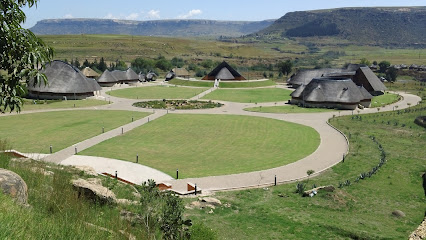
Malealea Lodge, Lesotho - Pony Trekking & MTB
Experience the stunning landscapes and rich culture of Lesotho at Malealea Lodge, your gateway to pony trekking, mountain biking, and unforgettable adventures.
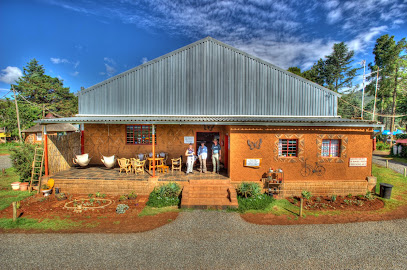
Basotho Hat
Explore the vibrant Basotho Hat market in Maseru, a cultural hub showcasing traditional crafts and unique souvenirs from Lesotho's rich heritage.
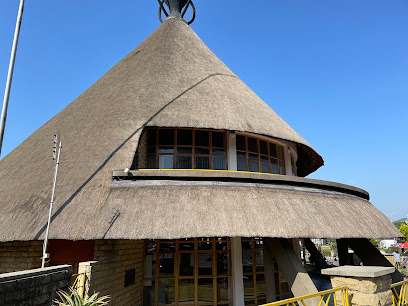
Liphofung Cave,chalets
Explore the stunning Liphofung Cave and Chalets in Khukhune, a unique blend of natural beauty and rich cultural heritage.
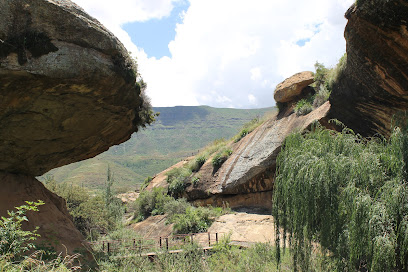
Mafika Lisiu Pass View Point
Experience the breathtaking beauty of Mafika Lisiu Pass View Point in Lesotho, a serene escape for nature lovers and adventure seekers alike.
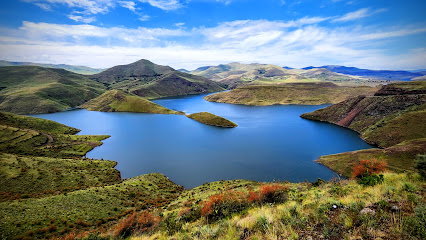
Morija Museum & Archives
Explore the cultural and historical treasures of Lesotho at Morija Museum & Archives, where the past meets the present.
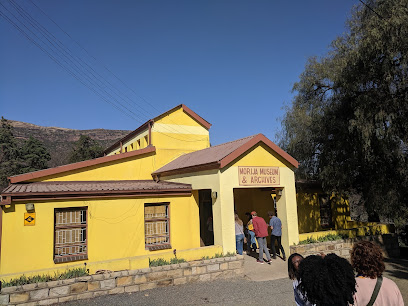
The Lion Rock Mountain
Experience breathtaking views and adventure at Lion Rock Mountain in Maseru, a natural wonder and cultural landmark of Lesotho.
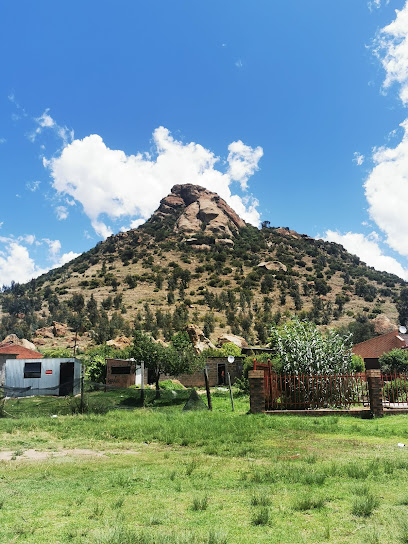
Nexx square
Explore Nexx Square, a vibrant monument in Maseru that showcases the rich culture and community spirit of Lesotho.
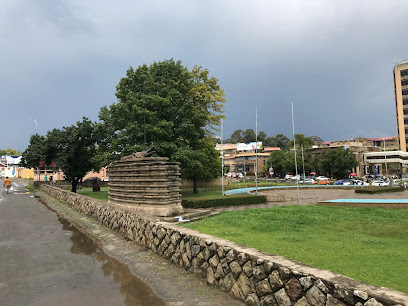
Kome Caves
Discover the ancient rock art and stunning geological formations of Kome Caves, a hidden gem in Mateka, Lesotho.
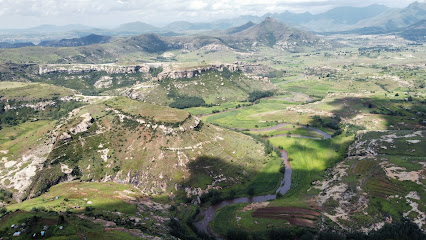
King Moshoeshoe I Royal Graves at Thaba Bosiu
Explore the historical significance of King Moshoeshoe I Royal Graves at Thaba Bosiu, a cultural treasure in the heart of Lesotho, rich in heritage and breathtaking views.
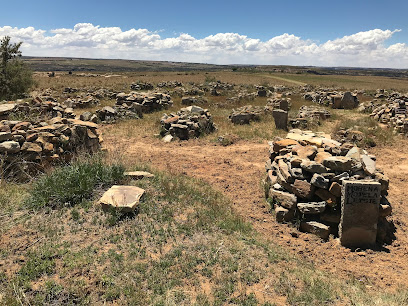
Gates of Paradise Pass
Discover the breathtaking beauty and rich culture at Gates of Paradise Pass, a must-visit historical landmark in Malealea, Lesotho.
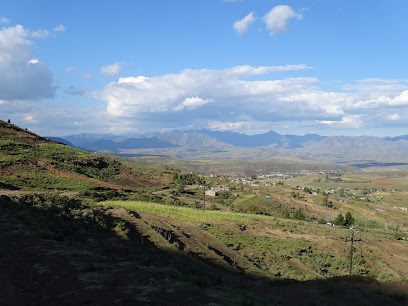
Golden Hotel
Discover comfort and convenience at the Golden Hotel in Mafeteng, your perfect lodging choice for an unforgettable Lesotho experience.
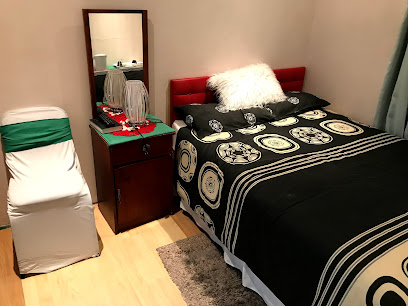
Maqalika Dam
Discover the beauty and adventure of Maqalika Dam in Maseru, Lesotho, where serene waters meet stunning landscapes and exciting rowing opportunities.
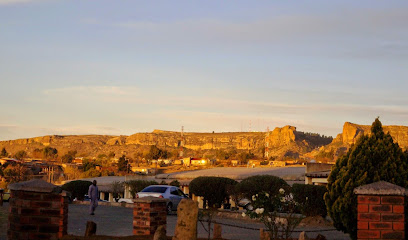
Thabana Mohlomi
Explore the breathtaking heights of Thabana Mohlomi, the highest mountain peak in Lesotho, for an unforgettable adventure in nature's paradise.

Ramarothole Solar Power Station
Explore the Ramarothole Solar Power Station in Mafeteng, Lesotho - a beacon of renewable energy and sustainability in Southern Africa.
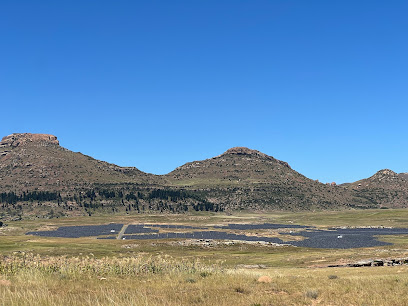
Unmissable attractions to see
Bophelo Dam
Discover the tranquil beauty of Bophelo Dam in Morija, a serene park offering stunning views and outdoor relaxation in Lesotho.
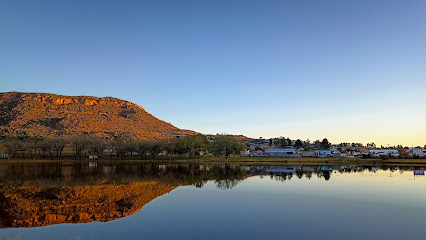
Sekoere's
Discover Lesotho's beauty and culture at Sekoere's in Maseru, where stunning landscapes meet vibrant local traditions.
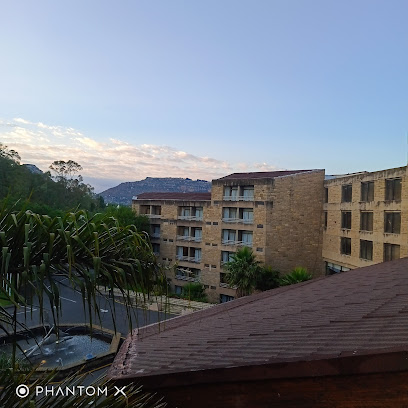
Ha Mohlehli
Discover the tranquil beauty of Ha Mohlehli Park in Bolumatau, a perfect escape for nature lovers and outdoor enthusiasts looking to unwind.

Tsoaing river source
Escape to the tranquil Tsoaing River Source in Mafeteng, Lesotho, where nature's beauty and serenity await. A perfect retreat for relaxation and exploration.

Essential places to dine
No.7 Restaurant
Experience the rich flavors and warm hospitality at No.7 Restaurant in Maseru – a must-visit culinary gem for every traveler.
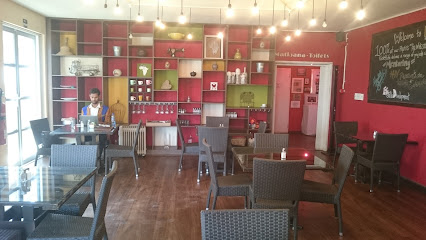
KFC Mafeteng
Experience the taste of iconic fried chicken at KFC Mafeteng – where comfort meets convenience in Lesotho's vibrant dining scene.
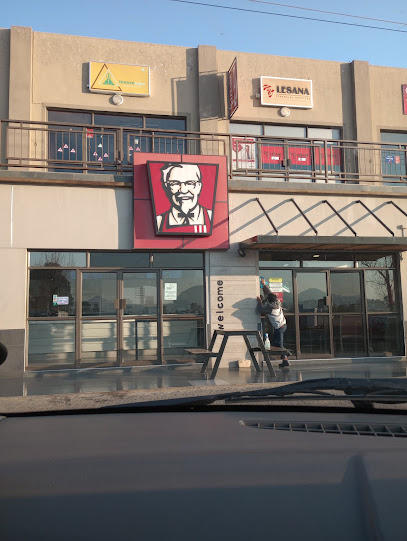
Captain Doregos Mafeteng
Experience the vibrant flavors of Lesotho at Captain Doregos Mafeteng - where culinary tradition meets modern dining.
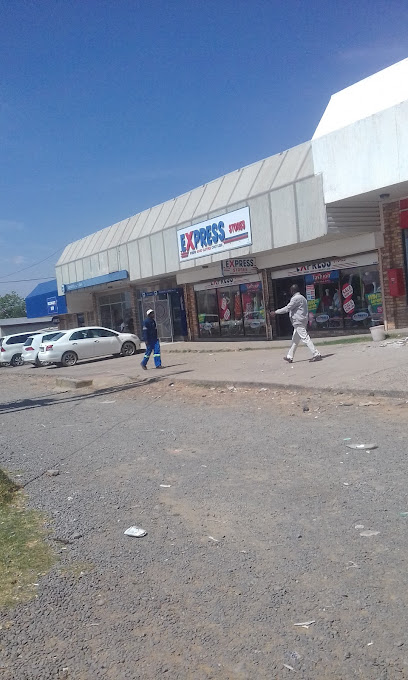
Point Nemo Roadhouse
Experience vibrant nightlife and delectable cuisine at Point Nemo Roadhouse in Van Rooyen's Gate - your go-to destination for drinks and dining.
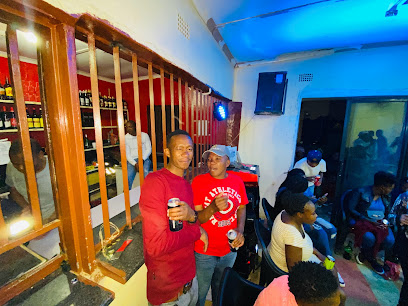
The Michi Grill
Discover delicious grilled dishes at The Michi Grill in Mafeteng – where flavor meets tradition in every bite.
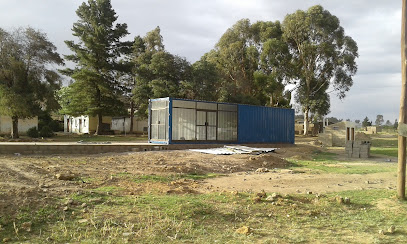
Cafe Mojo
Experience delightful local flavors and international cuisine at Cafe Mojo in Morija - A cozy retreat for food lovers.
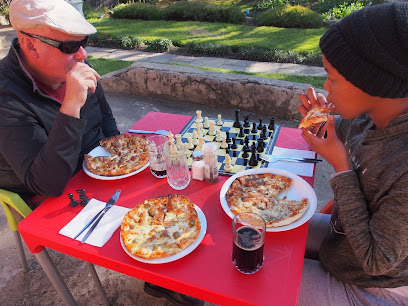
JALOPY
Discover JALOPY: A vibrant pub in Mafeteng where locals meet travelers over delicious food and drinks.
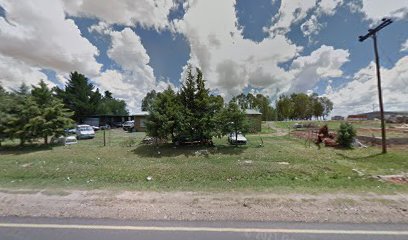
The Hut Diner
Discover authentic Basotho cuisine at The Hut Diner in Mafeteng - where every dish tells a story.
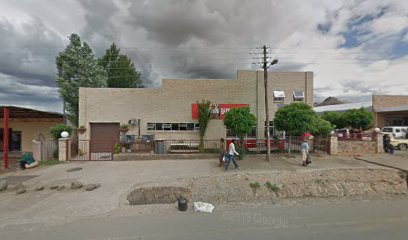
Jankie's
Discover the taste of authentic grilled cuisine at Jankie's Grill in Mafeteng - where local flavors meet warm hospitality.
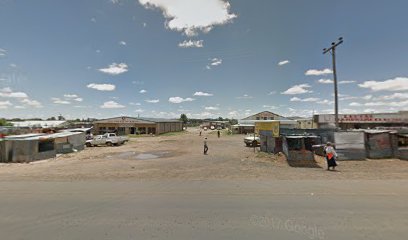
Eclipse Snack Bar
Experience delicious fast food at Eclipse Snack Bar in Mafeteng—where flavor meets convenience in every bite!
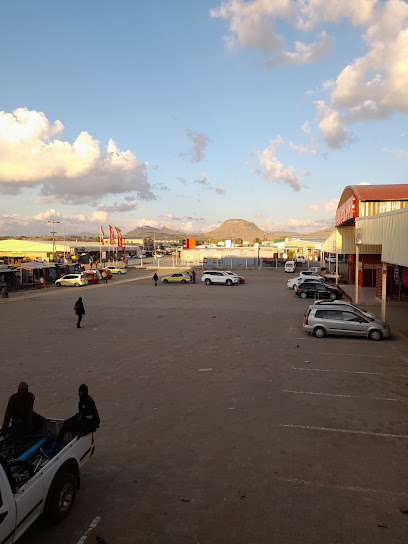
KFC Leluma
Experience the iconic taste of KFC at Leluma in Mafeteng, where delicious meals meet friendly service.

Butha_buthe
Discover Butha-Buthe's vibrant culinary scene where tradition meets flavor in every dish served amidst stunning mountain vistas.

Debonair's pizza
Savor mouthwatering pizzas made with fresh ingredients at Debonair's Pizza in Malumeng – an unmissable taste experience!

Bastys kitchen
Discover the authentic flavors of Lesotho at Bastys Kitchen in Mafeteng, where local ingredients meet warm hospitality.
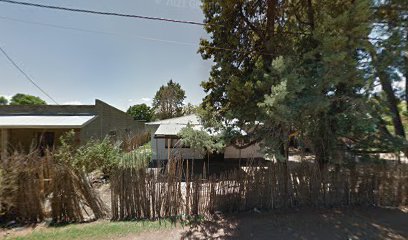
JABBY FAST FOOD
Experience delicious fast food at Jabby Fast Food in Mafeteng – where local flavors meet quick service.
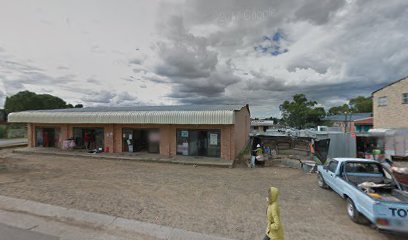
Markets, malls and hidden boutiques
Shoprite Mafeteng
Discover the heart of Mafeteng at Shoprite – a supermarket offering local produce and international goods in a welcoming atmosphere.
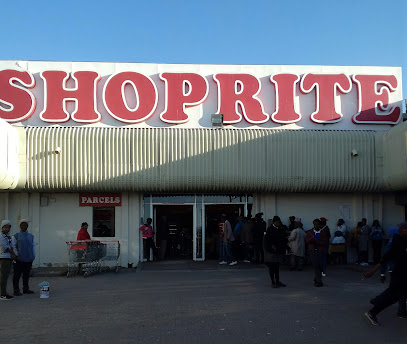
Econo Foods Mafeteng
Econo Foods Mafeteng offers an extensive selection of frozen foods, perfect for tourists seeking local flavors and convenient meal solutions.

Dunlop Zone Mdlokovana Motor Spares & Tyre Mafeteng
Discover Dunlop Zone Mdlokovana in Mafeteng, offering tire repairs, sales, and essential auto services for every traveler on the road.
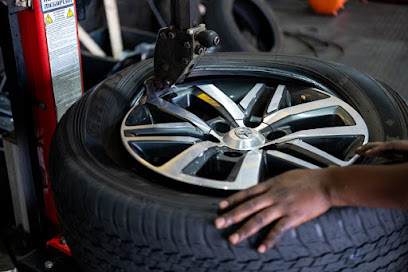
Cashbuild
Discover quality building materials and expert advice at Cashbuild, your trusted supplier in Mafeteng, Lesotho.
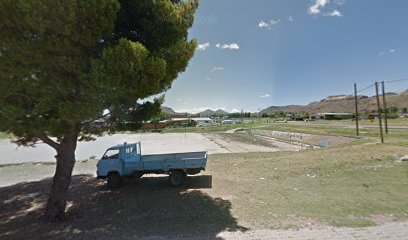
The Legend Pharmacy
Explore Mafeteng with peace of mind, knowing that The Legend Pharmacy has all your health needs covered.
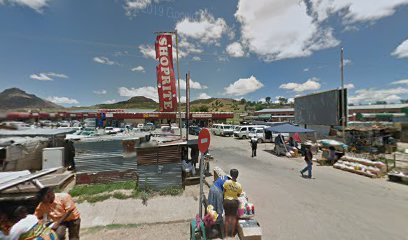
Ok Furniture
Discover the charm of Ok Furniture Shopping Mall in Mafeteng, where shopping meets local hospitality and style.
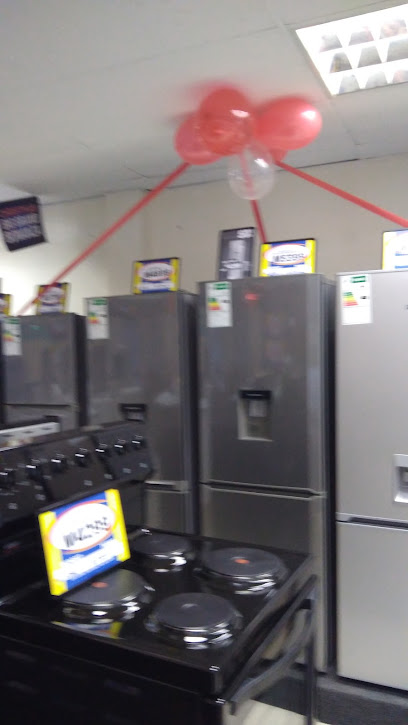
K ONE PTY LTD
Discover local flavors and fresh produce at K ONE PTY LTD, your premier grocery store destination in Mafeteng, Lesotho.
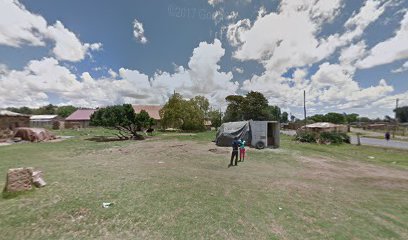
Hua sheng pty Ltd
Explore the authentic flavors of Chinese cuisine at Hua Sheng Pty Ltd, your go-to Chinese supermarket in Mafeteng, Lesotho.
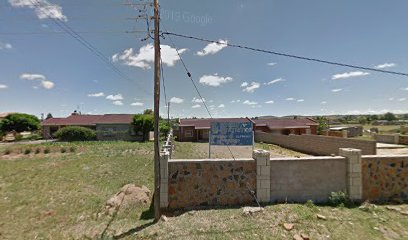
Taiba furniture and hardware
Explore authentic local craftsmanship and unique furniture pieces at Taiba Furniture and Hardware in Mafeteng, Lesotho.
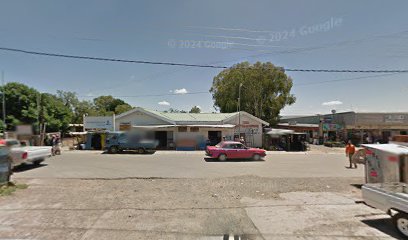
Leuta's Hardware And Electrical
Explore top-quality hardware and electrical supplies at Leuta's Hardware And Electrical in Mafeteng, perfect for all your DIY projects.
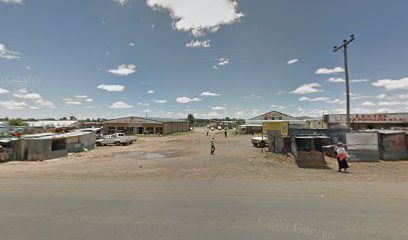
Oriental Building
Explore the vibrant Oriental Building in Mafeteng, a shopping mall that captures the essence of local culture and offers diverse shopping experiences.
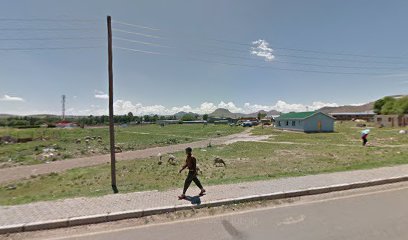
Hypersave Hardware And Furniture
Discover quality home improvement and furniture solutions at Hypersave Hardware And Furniture in Mafeteng, where local charm meets exceptional service.
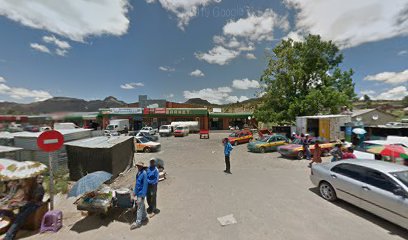
Dunns Mafeteng
Discover the heart of fashion at Dunns Mafeteng, your go-to clothing store in Lesotho for stylish, quality apparel for every occasion.

Mafeteng Wholesale
Explore authentic local flavors at Mafeteng Wholesale, a vibrant grocery store in the heart of Lesotho, where community and culture come together.
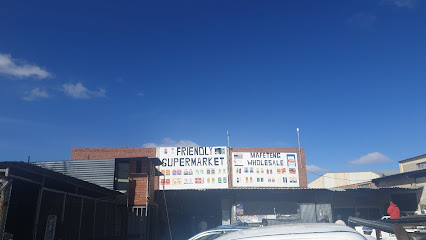
Circle Supermarket
Discover local flavors and essentials at Circle Supermarket in Mafeteng, the perfect stop for tourists to experience the community's vibrant culture.
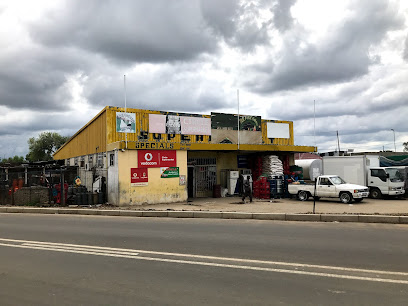
Essential bars & hidden hideouts
KFC Mafeteng
Indulge in the crispy delights of KFC Mafeteng, where fast food meets local flavor in the heart of Lesotho.
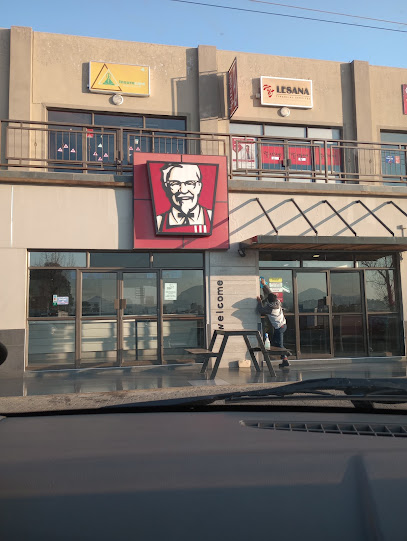
Point Nemo Roadhouse
Experience the vibrant atmosphere and diverse menu at Point Nemo Roadhouse, the ultimate bar and grill in Van Rooyen's Gate, Lesotho.
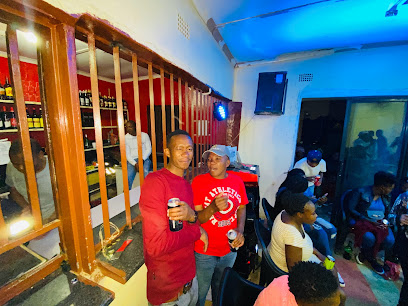
Lindi Guest House
Experience comfort and hospitality at Lindi Guest House in Mafeteng, where every stay is a memorable journey into Lesotho's heart.
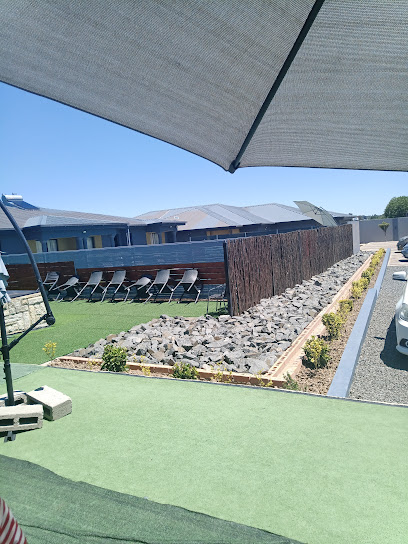
The Michi Grill
Experience traditional grilled cuisine at The Michi Grill, a culinary delight in Mafeteng offering fresh, local ingredients and a cozy atmosphere.
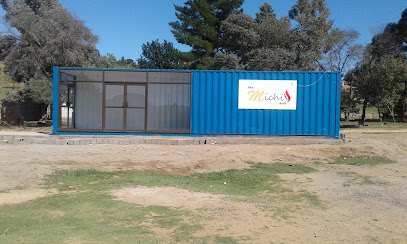
Leifo Bar
Experience the vibrant nightlife at Leifo Bar in Maseru, where local drinks and a lively atmosphere await every visitor.
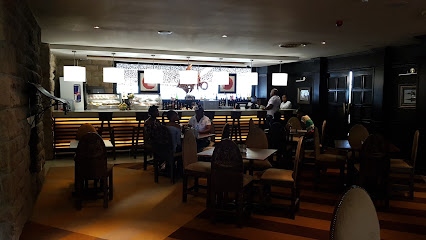
Grace Guest House Mafeteng
Experience the welcoming atmosphere of Grace Guest House Mafeteng, your cozy retreat in the heart of Lesotho's vibrant culture and stunning landscapes.
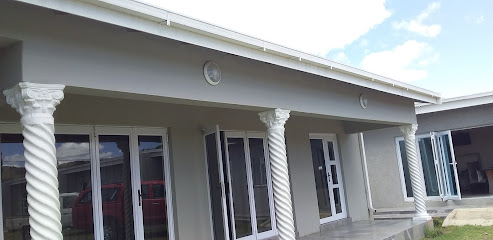
Eclipse Lounge
Experience the vibrant nightlife at Eclipse Lounge in Mafeteng, where great drinks and friendly vibes come together for an unforgettable evening.
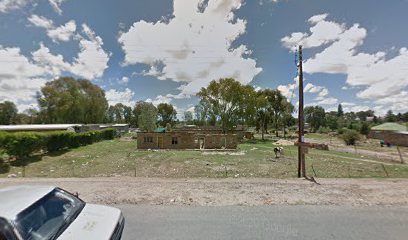
Mejametalana Public Bar
Immerse yourself in the vibrant culture and nightlife at Mejametalana Public Bar in Maseru, Lesotho, where locals and tourists mingle over drinks.
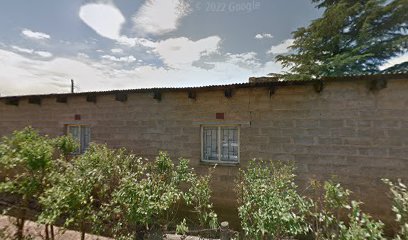
JALOPY
Discover Jalopy in Mafeteng: A vibrant pub offering delicious food, refreshing drinks, and a lively atmosphere for locals and tourists alike.
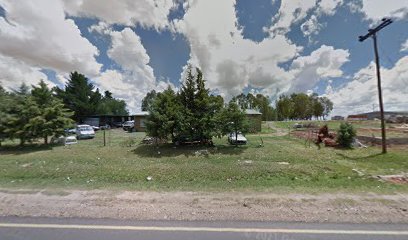
Sugah Da House Lounge
Enjoy a vibrant pub experience at Sugah Da House Lounge, where local culture meets refreshing drinks in the heart of Makhoathi.
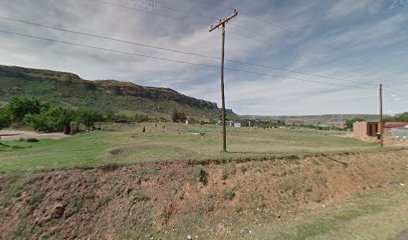
Lekoantlana Public Bar
Discover the lively ambiance of Lekoantlana Public Bar in Thabaneng, where local culture meets vibrant nightlife in an unforgettable setting.
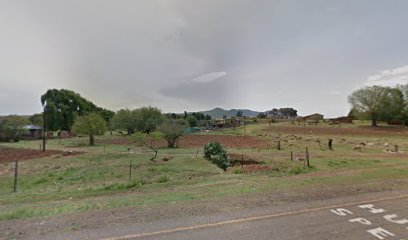
P.S Bar
Discover the warm atmosphere and diverse drink offerings at P.S Bar in Foso, where locals and tourists mingle in a cozy retreat.
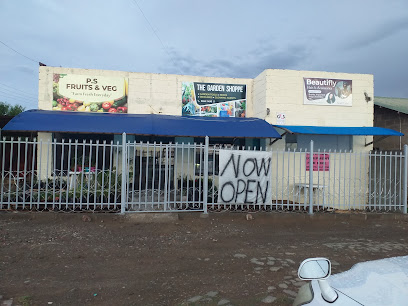
CoolDown Public Bar (Lwabe la ikisa)
Discover the vibrant atmosphere of CoolDown Public Bar in Mohales Hoek, where refreshing drinks meet a lively social scene.
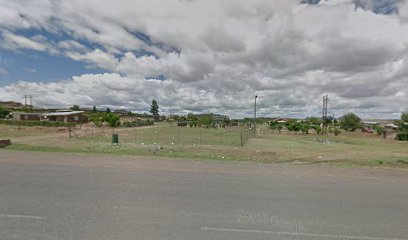
Chillas Public Bar and Grill
Experience the vibrant atmosphere and delicious grilled dishes at Chillas Public Bar and Grill in Foso, the heart of culinary delight.
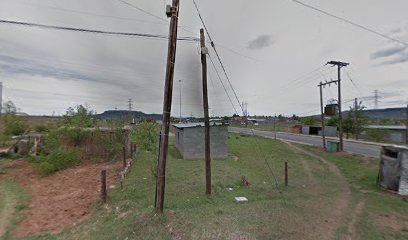
Local Phrases
-
- HelloDumela
[doo-meh-lah] - GoodbyeTsamaea hantle
[tsah-mah-eh han-tleh] - YesEa
[eh-ah] - NoHa
[hah] - Please/You're welcomeKa kopo
[kah koh-poh] - Thank youKea leboha
[kehah leh-boh-hah] - Excuse me/SorryKe kopa litšoantšo
[keh koh-pah leet-soh-ahn-tsoh] - How are you?U phela joang?
[oo peh-lah jwah-ng] - Fine. And you?Ke phela hantle. Le uena?
[keh peh-lah han-tleh. leh oo-eh-nah] - Do you speak English?Na u bua se-keletšana?
[nah oo boo-ah seh-keh-leh-tshah-nah] - I don't understandHa ke tsebe
[hah keh tseh-beh]
- HelloDumela
-
- I'd like to see the menu, pleaseKe kopa ho bona menu, ka kopo
[keh koh-pah hoh boh-nah meh-noo, kah koh-poh] - I don't eat meatHa ke ile ka nka nyama
[hah keh ee-leh kah n-kah n-yah-mah] - Cheers!Phuma kimono!
[phoo-mah kee-moh-noh] - I would like to pay, pleaseKe kopa ho fumana, ka kopo
[keh koh-pah hoh foo-mah-nah, kah koh-poh]
- I'd like to see the menu, pleaseKe kopa ho bona menu, ka kopo
-
- Help!Tlameha!
[tlah-meh-hah] - Go away!Kenela!
[keh-neh-lah] - Call the Police!Kenela polisi!
[keh-neh-lah poh-lee-see] - Call a doctor!Kenela nkhau!
[keh-neh-lah n-khah-oo] - I'm lostKe ile ka etsa
[keh ee-leh kah eht-sah] - I'm illKe betoa
[keh beh-toh-ah]
- Help!Tlameha!
-
- I'd like to buy...Ke kopa ho rekela...
[keh koh-pah hoh reh-keh-lah] - I'm just lookingKe ngola sena
[keh n-goh-lah seh-nah] - How much is it?Ke bokae?
[keh boh-kah-eh] - That's too expensiveEna e ncha
[eh-nah eh n-chah] - Can you lower the price?Na u hokae sebaka?
[nah oo hoh-kah-eh seh-bah-kah]
- I'd like to buy...Ke kopa ho rekela...
-
- What time is it?Ke nako mang?
[keh nah-koh mah-ng] - It's one o'clockKe nako ya nngwe
[keh nah-koh yah n-ngweh] - Half past (10)Nako e nngwe e metsi
[nah-koh eh n-ngweh eh meh-tsee] - MorningMosela
[moh-seh-lah] - AfternoonMetsing
[meh-tseeng] - EveningKhehla
[keh-lah] - YesterdayNaha
[nah-hah] - TodayNako ea namuhla
[nah-koh eh-ah nah-moo-hlah] - TomorrowNako ea boholo
[nah-koh eh-ah boh-hoh-loh] - 1Nngwe
[n-ngweh] - 2Puo
[poo-oh] - 3Tharo
[tah-roh] - 4Nne
[n-neh] - 5Tlhano
[t-lah-noh] - 6Tlhare
[t-lah-reh] - 7Supa
[soo-pah] - 8Robobeli
[roh-boh-beh-lee] - 9Nonyane
[noh-nyah-neh] - 10Lesome
[leh-soh-meh]
- What time is it?Ke nako mang?
-
- Where's a/the...?Ke kae...?
[keh kah-eh] - What's the address?Itšetle ho na?
[ee-tsheh-tleh hoh nah] - Can you show me (on the map)?Na o ka sebetsa ke kopa?
[nah oh kah seh-beh-tsah keh koh-pah] - When's the next (bus)?Ke nako efe e tla joang?
[keh nah-koh eh-feh eh tl-ah jwah-ng] - A ticket (to ....)Letikete (ho ....)
[leh-tee-keh-teh hoh]
- Where's a/the...?Ke kae...?
History of Mafeteng
-
Mafeteng, located in the southwestern part of Lesotho, was established in the 19th century. The name 'Mafeteng' translates to 'The Place of the Passes', reflecting its geographical significance. Initially, it served as an administrative center for the colonial government, which played a crucial role in the development and organization of the area.
-
During the late 19th century, Mafeteng became a focal point during the Gun War (1880-1881) between the Basotho people and the British colonial forces. The conflict arose from disputes over land and the imposition of British rule. Mafeteng's strategic location made it a key battleground, and many historical sites in the area still bear the marks of this significant conflict.
-
Throughout the 20th century, Mafeteng grew as an economic hub due to its fertile agricultural land and strategic location. The introduction of modern farming techniques and infrastructure improvements, such as roads and schools, contributed to the town's prosperity. Mafeteng also became known for its vibrant local markets, which attract traders and buyers from across the region.
-
Mafeteng is rich in cultural heritage, with traditions deeply rooted in Basotho customs. The town is known for its traditional music and dance, such as the 'mokorotlo' (a traditional Basotho war dance). Local artisans produce intricate crafts, including pottery and woven goods, which reflect the community's artistic heritage. Annual festivals and ceremonies, like the 'Morija Arts & Cultural Festival', celebrate the town's cultural diversity and historical legacy.
-
Mafeteng boasts several significant landmarks that showcase its historical and architectural heritage. The Mafeteng District Hospital, built in the early 20th century, stands as a testament to the town's development in healthcare. The local churches, with their unique blend of colonial and Basotho architectural styles, offer a glimpse into the town's religious and cultural evolution. Additionally, the remnants of old colonial buildings provide a window into Mafeteng's past.
-
Today, Mafeteng is a bustling town that balances its historical roots with modern advancements. The town continues to serve as a key administrative and economic center in Lesotho. Modern amenities, such as improved transportation networks, educational institutions, and healthcare facilities, have enhanced the quality of life for its residents. Despite these developments, Mafeteng remains deeply connected to its historical and cultural heritage, making it a unique destination for visitors.
Mafeteng Essentials
-
Mafeteng is located in the southwestern part of Lesotho. The nearest international airport is Moshoeshoe I International Airport in Maseru, approximately 70 kilometers away. From Maseru, you can take a taxi or a bus to Mafeteng, which typically takes around 1 to 1.5 hours by road. Car rentals are also available in Maseru for those who prefer to drive themselves.
-
Mafeteng is a small town and many attractions are within walking distance. Local taxis are readily available and reasonably priced for longer trips. Mini-buses or 'kombis' operate within the town and connect to nearby villages. Renting a car is an option for those who wish to explore the surrounding areas at their own pace.
-
The official currency in Lesotho is the Lesotho Loti (LSL), but South African Rand (ZAR) is also widely accepted. Credit cards are accepted in some hotels, restaurants, and shops, but it is advisable to carry cash, especially in smaller establishments and rural areas. ATMs are available in Mafeteng, but it's wise to withdraw sufficient cash in Maseru to ensure you have enough funds.
-
Mafeteng is generally a safe destination for tourists. However, like any travel destination, it is advisable to take standard precautions. Avoid walking alone at night in unfamiliar areas and keep an eye on your belongings in crowded places. While there are no specific high-crime areas targeting tourists, it is always best to stay vigilant and aware of your surroundings.
-
In case of emergency, dial 112 for immediate assistance. The local police station and medical facilities are available in Mafeteng. It is recommended to have travel insurance that covers medical emergencies. For minor health issues, there are pharmacies in the town where you can purchase over-the-counter medications.
-
Fashion: Do dress modestly. Avoid wearing revealing clothing. Religion: Do respect local customs and traditions. Always show respect when visiting religious sites. Public Transport: Do be courteous and give up your seat to elderly passengers. Don't eat or drink on public transport. Greetings: Do greet people with a handshake. A slight bow of the head is also a sign of respect. Eating & Drinking: Do try local delicacies and accept food offerings graciously. Don't refuse hospitality, as it is considered impolite.
-
To experience Mafeteng like a local, visit the local markets where you can buy fresh produce and traditional Basotho goods. Engage with locals, as they are often friendly and willing to share stories about the town's history and culture. Don't miss visiting historical sites such as the Morija Museum and Archives, which offer insights into Lesotho's rich heritage. For a unique experience, try the traditional Basotho cuisine at local eateries.
Trending Landmark in Mafeteng
-
Thaba Bosiu Cultural Village
-
Malealea Lodge, Lesotho - Pony Trekking & MTB
-
Basotho Hat
-
Liphofung Cave,chalets
-
Mafika Lisiu Pass View Point
-
Morija Museum & Archives
-
The Lion Rock Mountain
-
Nexx square
-
Kome Caves
-
King Moshoeshoe I Royal Graves at Thaba Bosiu
-
Gates of Paradise Pass
-
Golden Hotel
-
Maqalika Dam
-
Thabana Mohlomi
-
Ramarothole Solar Power Station
Nearby Cities to Mafeteng
-
Things To Do in Mohale's Hoek
-
Things To Do in Maseru
-
Things To Do in Quthing
-
Things To Do in Teyateyaneng
-
Things To Do in Bloemfontein
-
Things To Do in Leribe
-
Things To Do in Thaba-Tseka
-
Things To Do in Butha-Buthe
-
Things To Do in Mokhotlong
-
Things To Do in Kimberley
-
Things To Do in East London
-
Things To Do in Durban
-
Things To Do in Johannesburg
-
Things To Do in Pretoria
-
Things To Do in Malkerns






